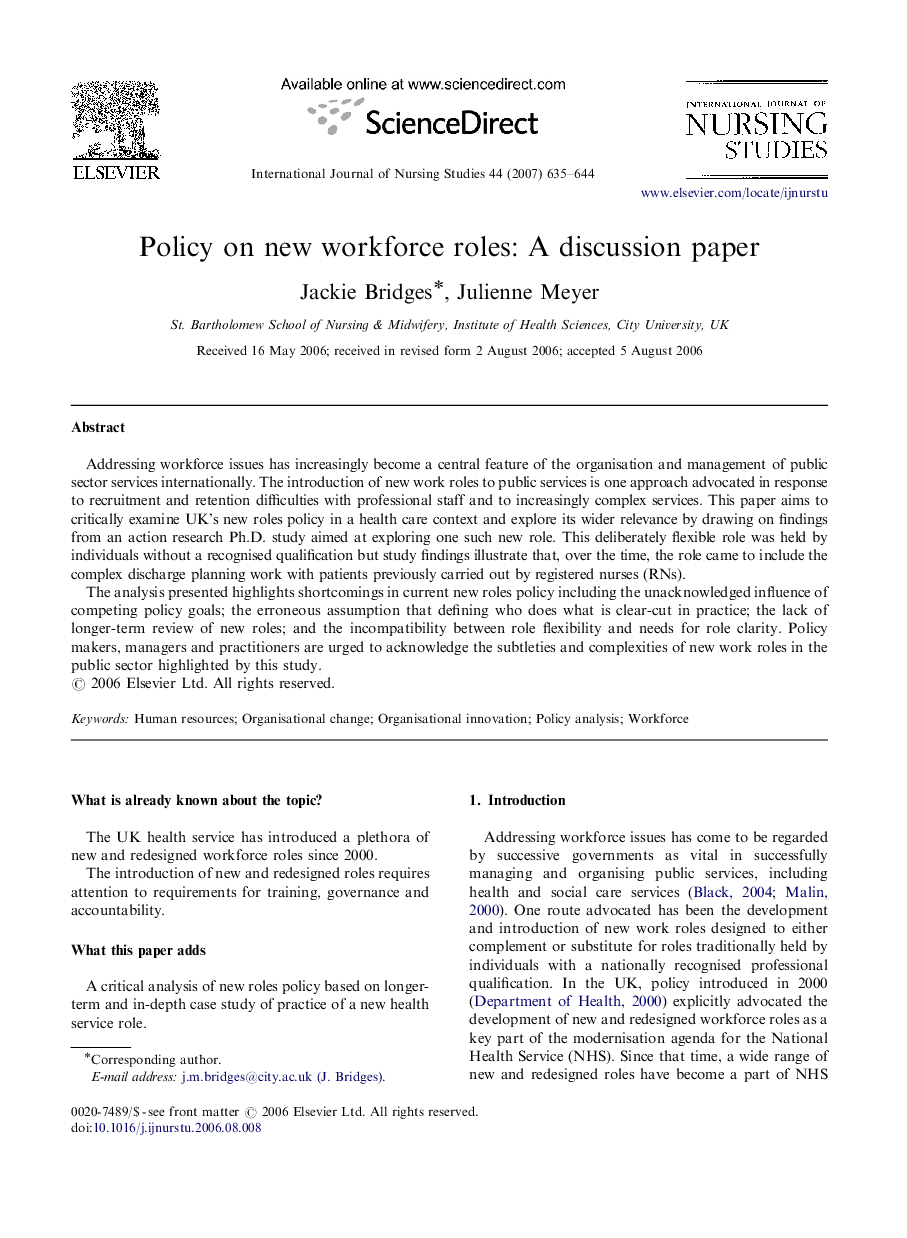| Article ID | Journal | Published Year | Pages | File Type |
|---|---|---|---|---|
| 1077576 | International Journal of Nursing Studies | 2007 | 10 Pages |
Addressing workforce issues has increasingly become a central feature of the organisation and management of public sector services internationally. The introduction of new work roles to public services is one approach advocated in response to recruitment and retention difficulties with professional staff and to increasingly complex services. This paper aims to critically examine UK's new roles policy in a health care context and explore its wider relevance by drawing on findings from an action research Ph.D. study aimed at exploring one such new role. This deliberately flexible role was held by individuals without a recognised qualification but study findings illustrate that, over the time, the role came to include the complex discharge planning work with patients previously carried out by registered nurses (RNs).The analysis presented highlights shortcomings in current new roles policy including the unacknowledged influence of competing policy goals; the erroneous assumption that defining who does what is clear-cut in practice; the lack of longer-term review of new roles; and the incompatibility between role flexibility and needs for role clarity. Policy makers, managers and practitioners are urged to acknowledge the subtleties and complexities of new work roles in the public sector highlighted by this study.
